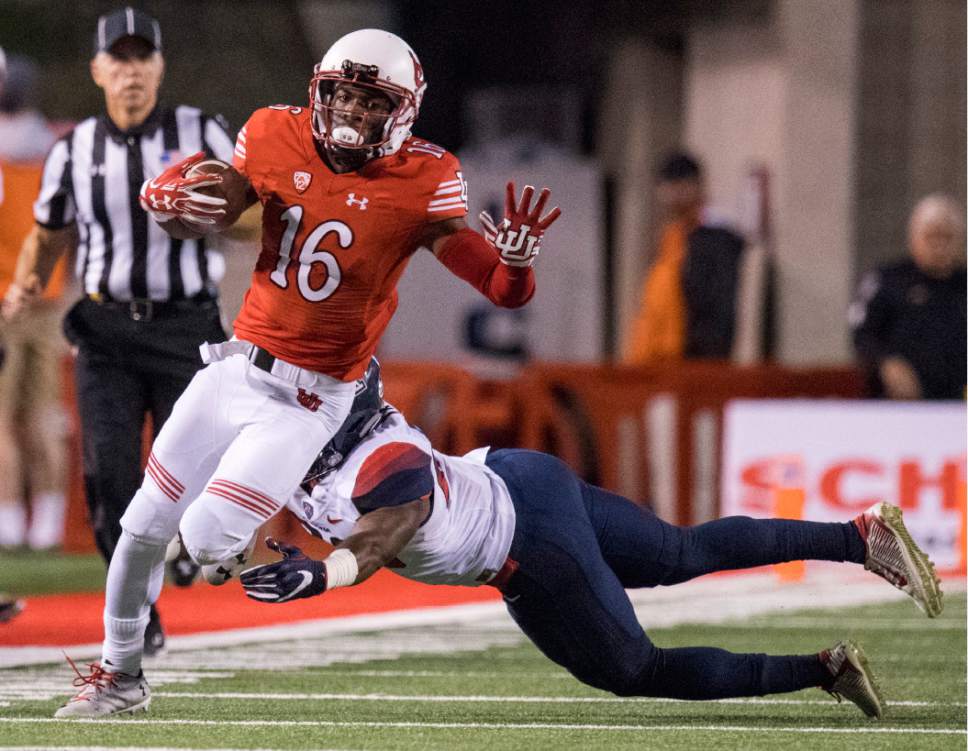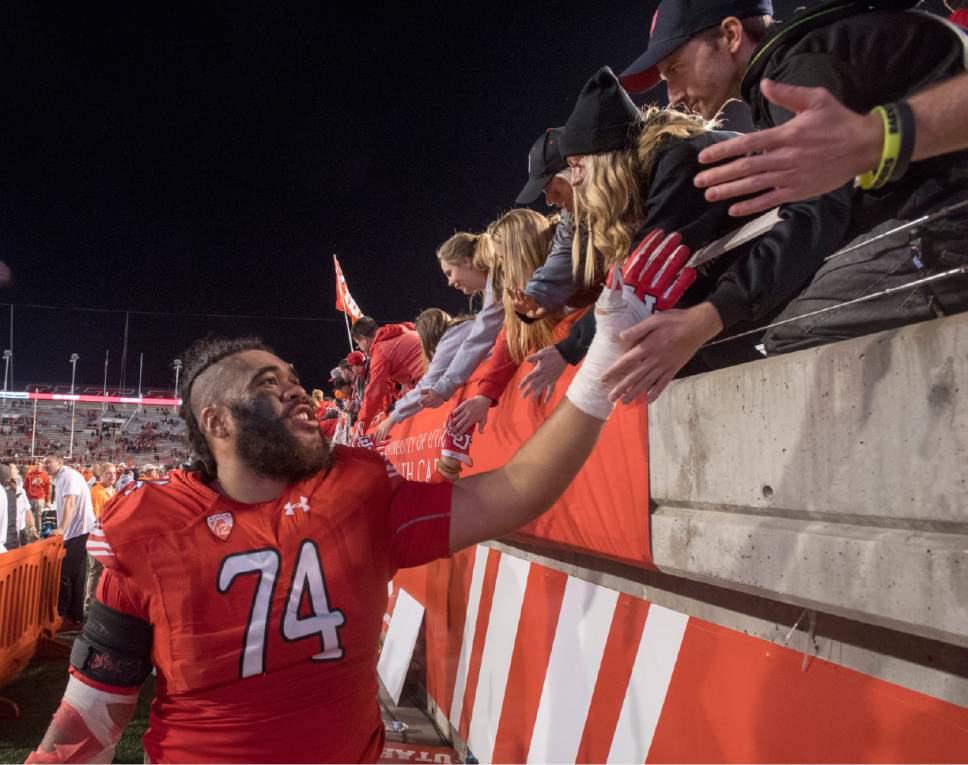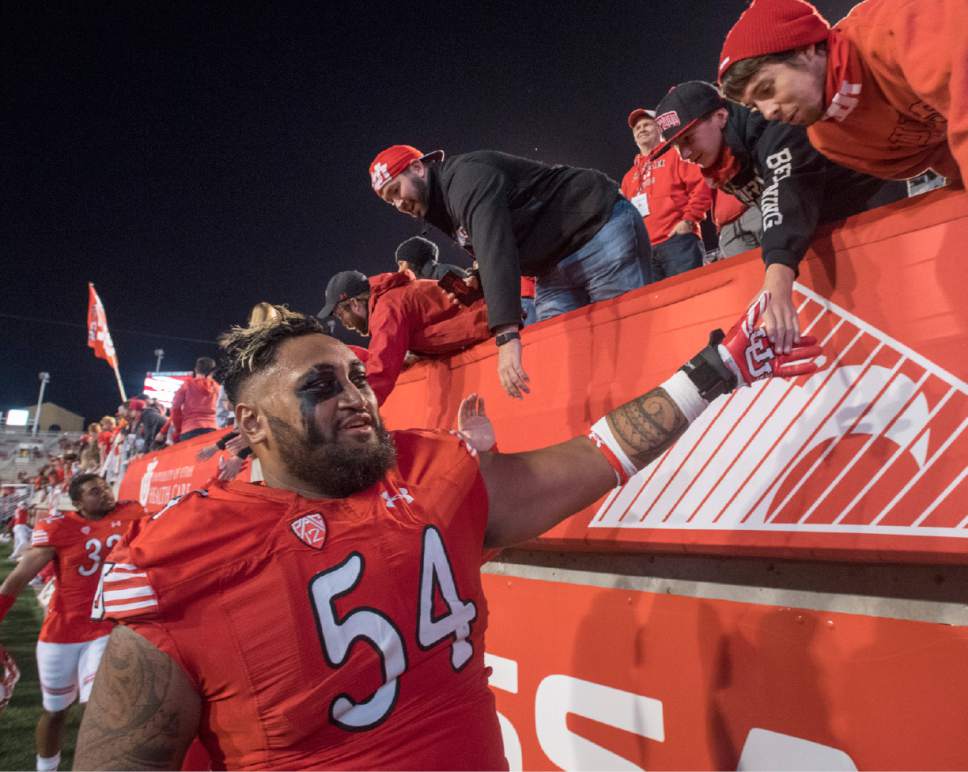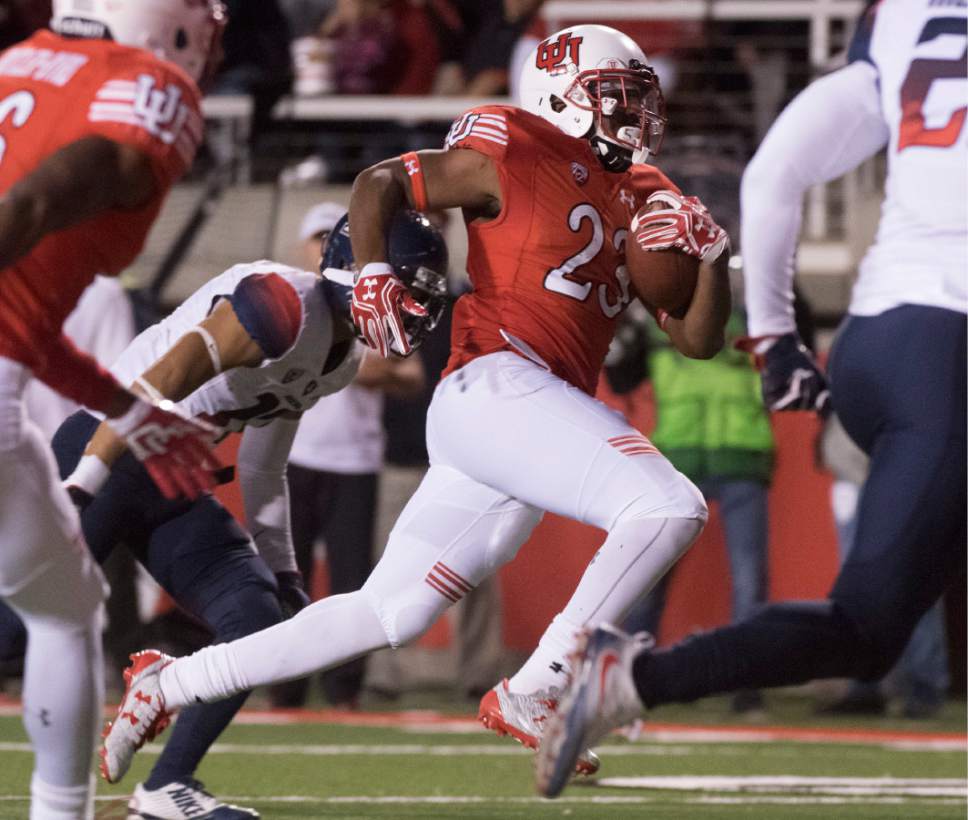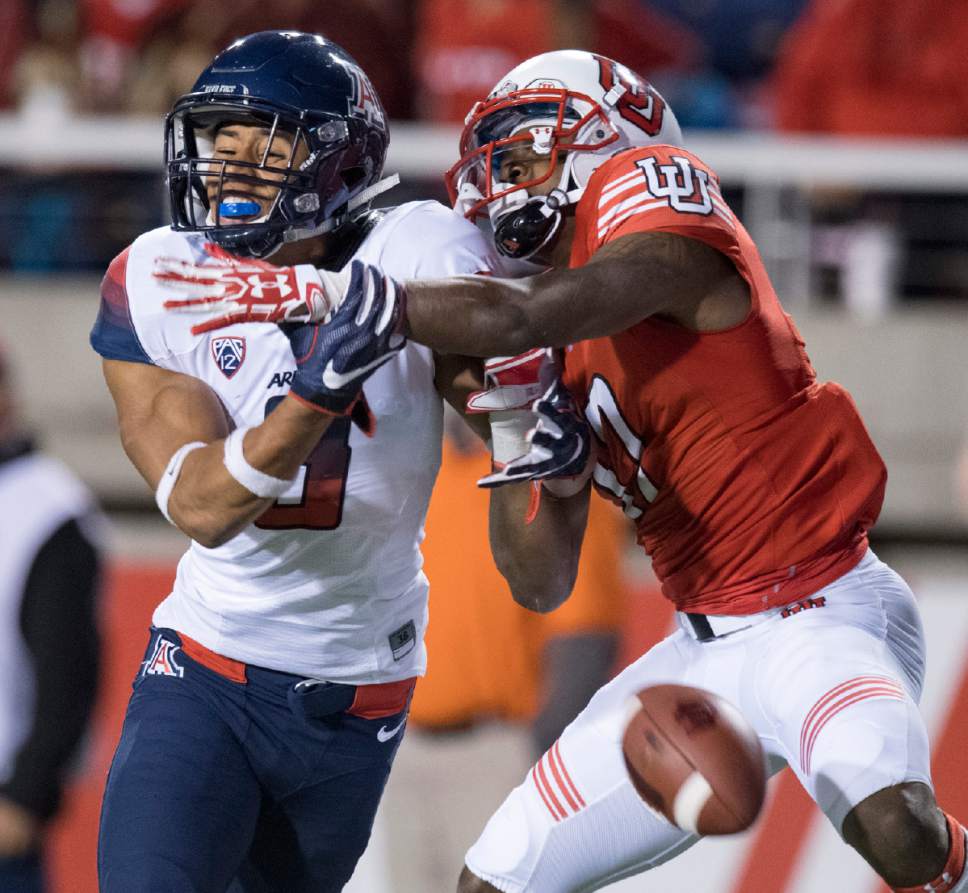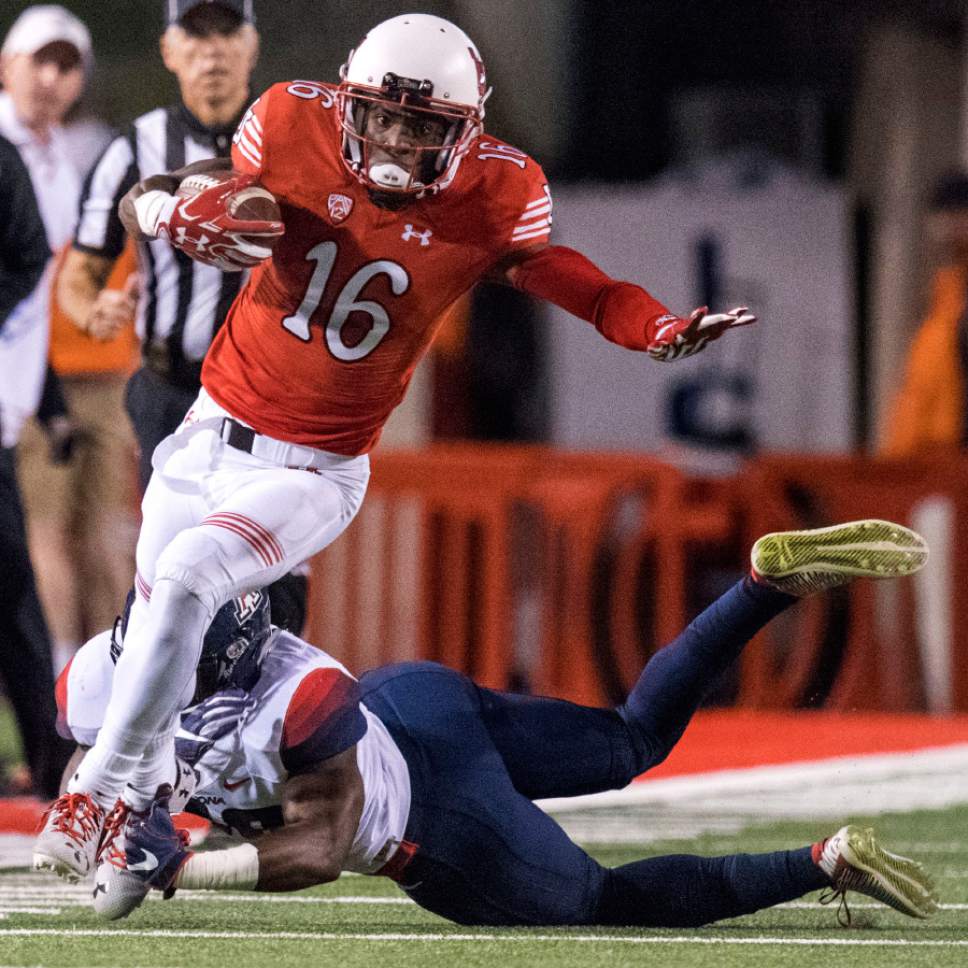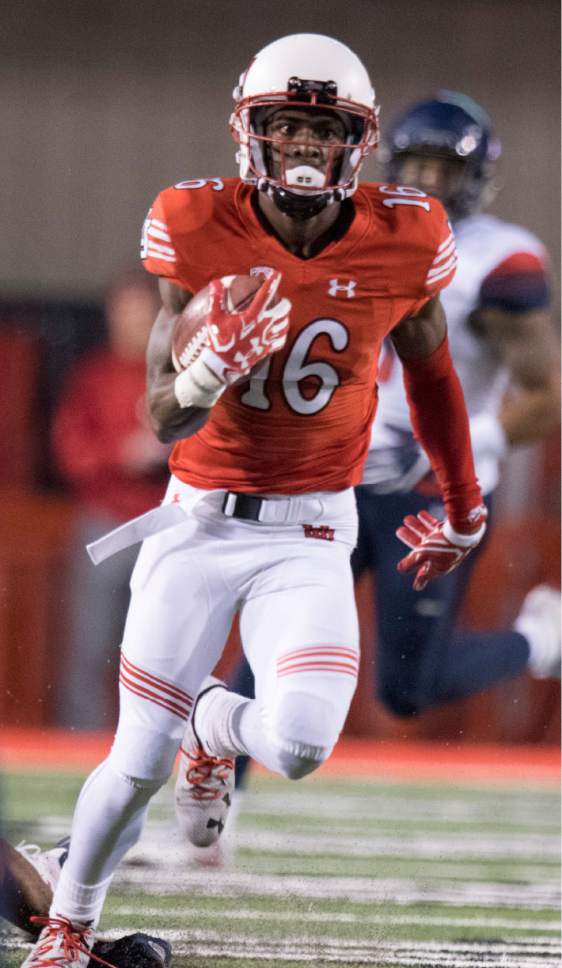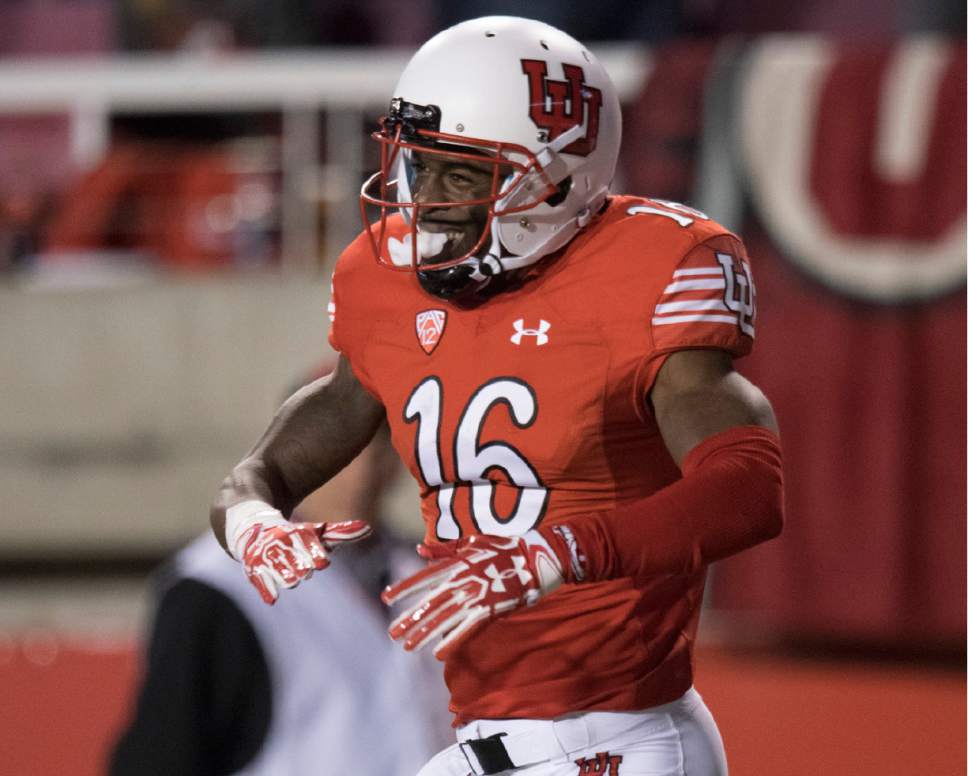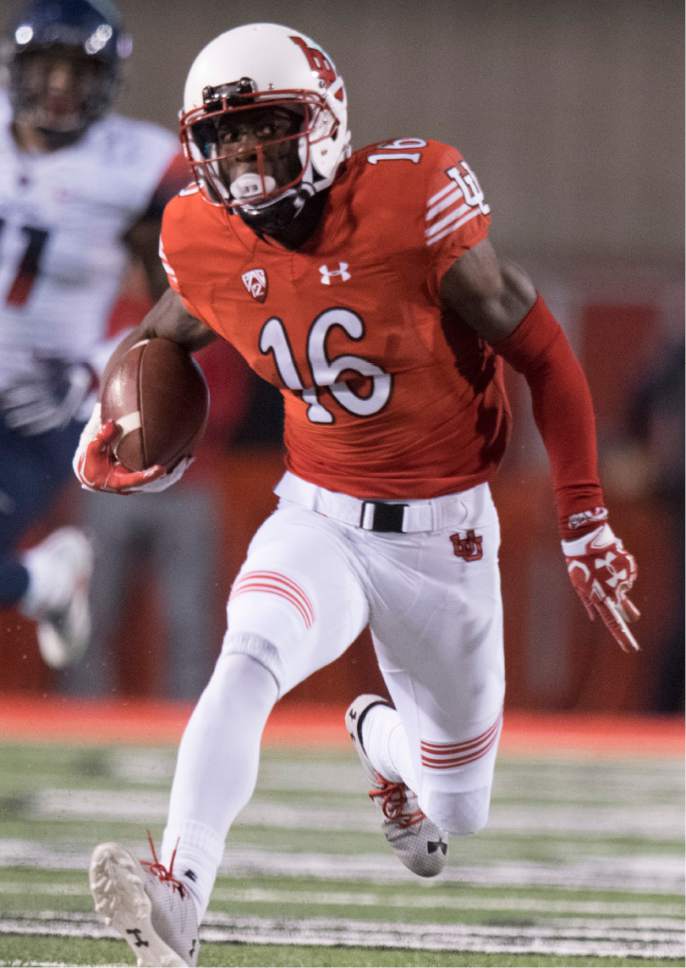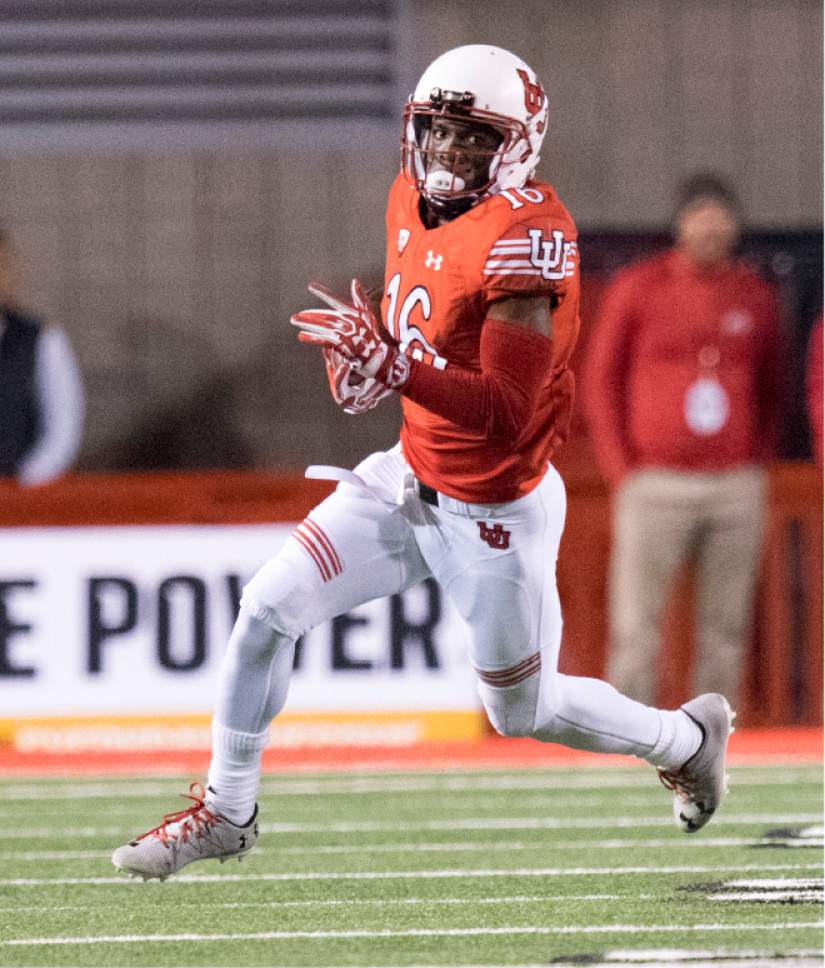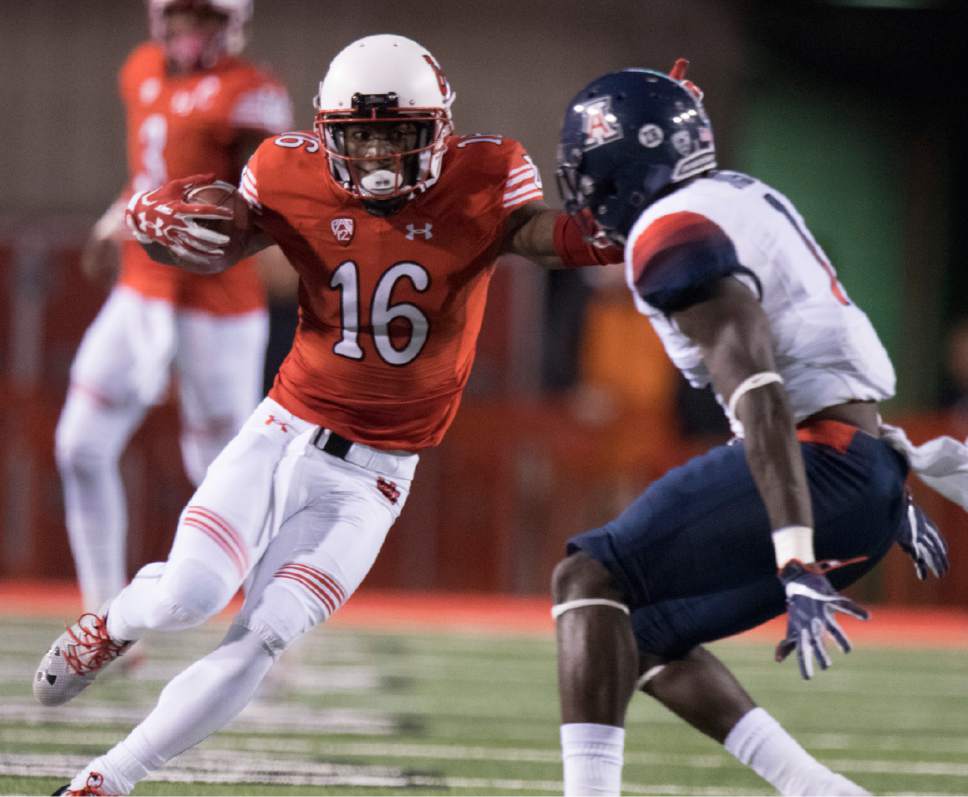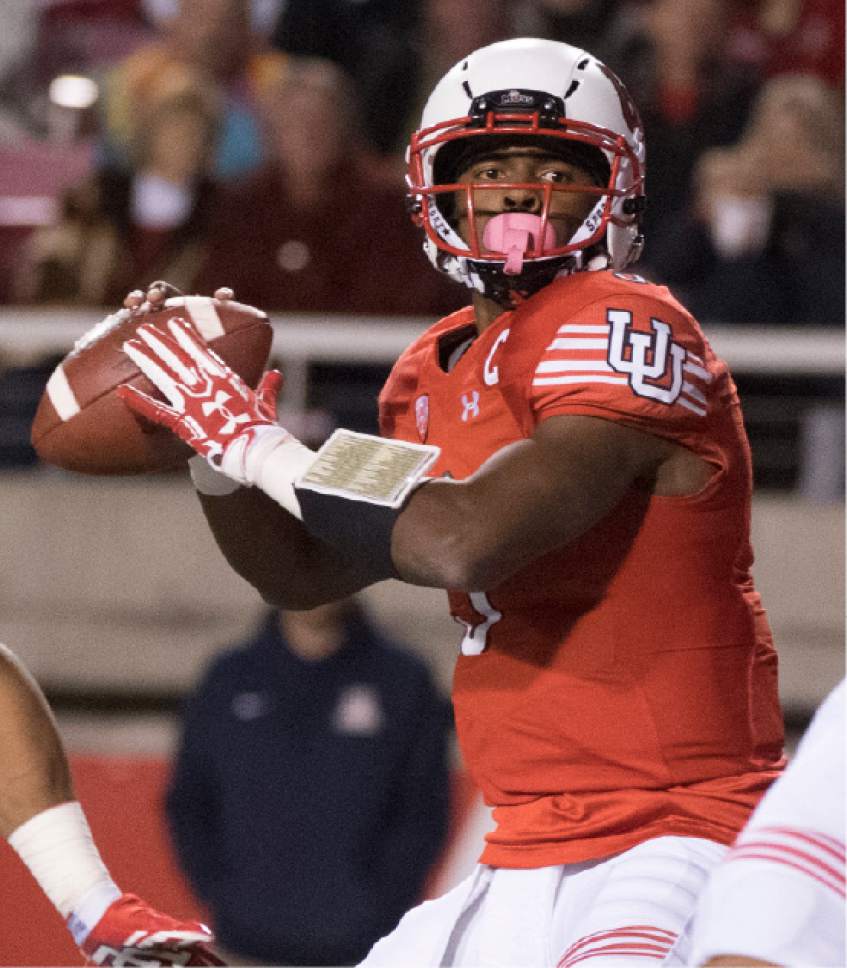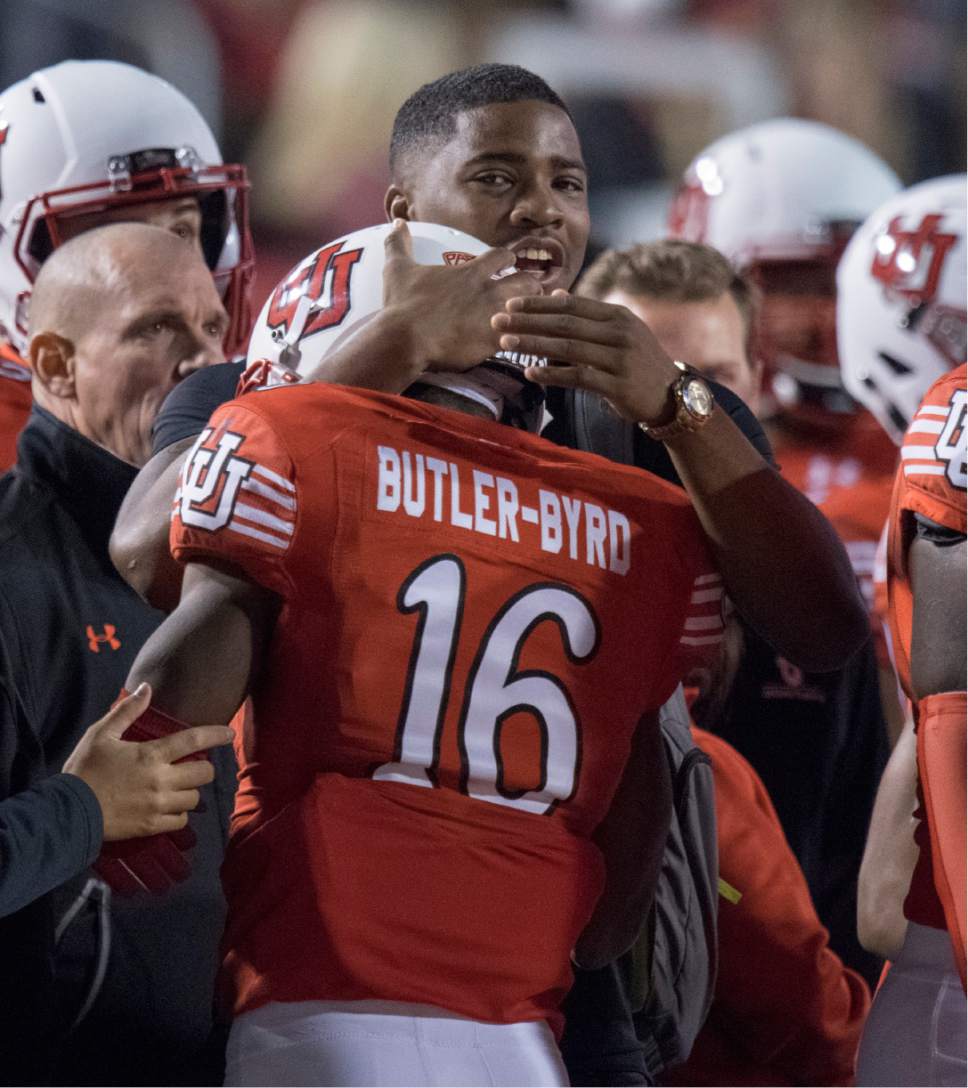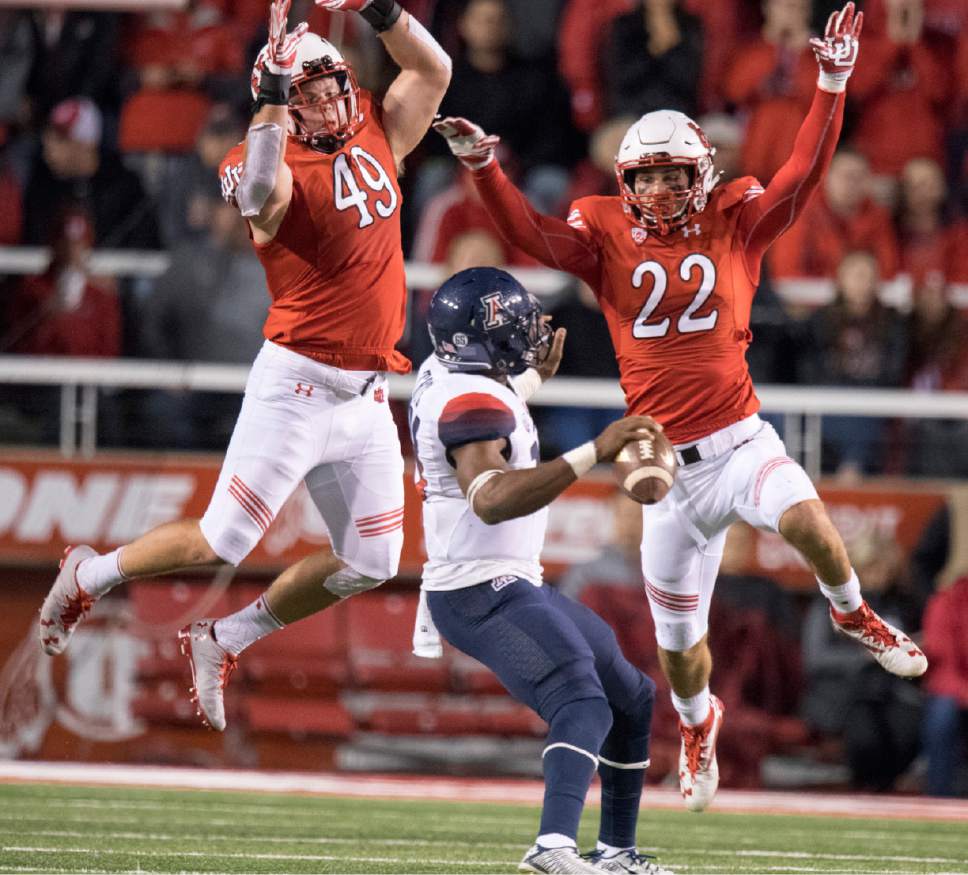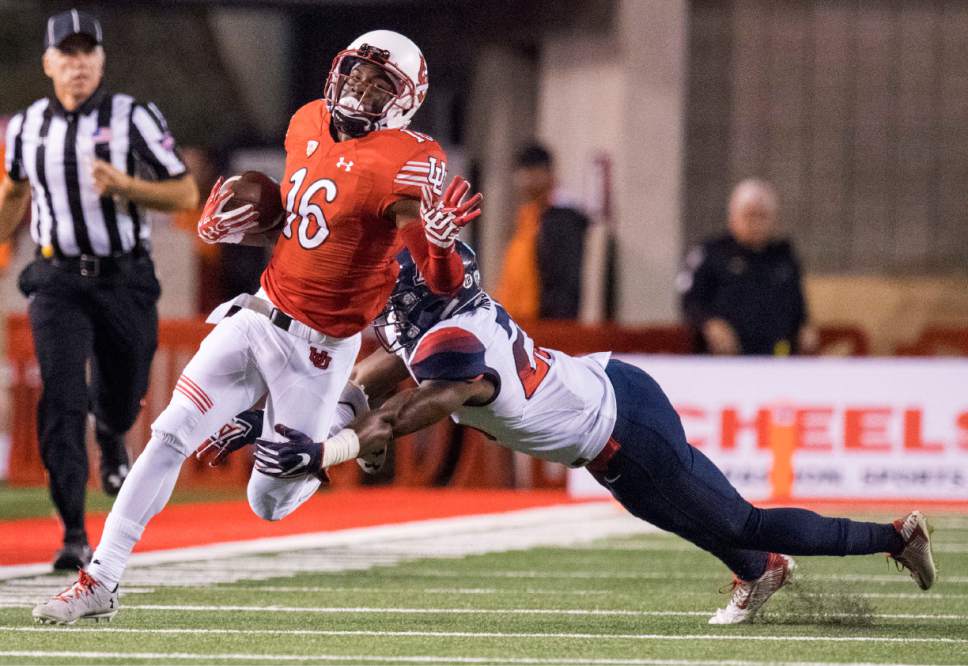This is an archived article that was published on sltrib.com in 2016, and information in the article may be outdated. It is provided only for personal research purposes and may not be reprinted.
Marcus Williams made a face when he heard the question. He turned to his quarterback at the postgame news conference, displaying a nervous smile.
What exactly were Kyle Whittingham's halftime comments to his team?
Troy Williams leaned forward into the mic: "He said, 'Go Utes.'"
The Utah players could enjoy the postgame moment of levity after the 36-23 win over Arizona in Sunday's early morning hours, basking in beating a team that had dogged them for years, and getting back on a winning track in the perilous Pac-12. But whatever coaxed Utah (5-1, 2-1) out of its first-half funk and onto the fast track for a 33-3 scoring run must have been stirring.
In fact, it seems it has been that way for weeks.
In football, coaches talk constantly about the factors a team can control versus what they can't. For Utah, injuries have been the uncontrollable factor. The Utes can't apply extra effort to get their three top backs fully healthy again, or bring back the two centers they've lost for the year. But they can figure out a way to get out of slow starts to games — they just haven't yet.
Some teams say they savor being an underdog. Utah actually gets itself in that position before it surges.
The Utes have given up two-score leads in their first three Pac-12 games, against USC, Cal and Arizona, needing comebacks in all three and coming up only a yard shy in the one loss. Before and after giving up these advantages, Utah presents two starkly different profiles: one team that bends to big plays and can't manufacture any itself, then one team that plays with ice water in its veins.
In the Utes' wins over USC and Arizona, the Trojans and Wildcats built two-score leads with a combined 38 points and 594 yards, but finished out the games with a combined 12 points and 347 yards. Meanwhile, a Utah offense that had 13 combined points and 314 yards before going down two scores would close out with 52 combined points (two more came on the Arizona safety) and 597 yards.
The Cal loss was similarly double-sided: Utah came back from a 14-0 deficit to take the lead, give it up, then nearly win it all only a yard shy of completing its second touchdown drive in only seven minutes.
What spurs the Utes into action? Adversity? Having their backs against the wall? Whatever it is, Utah is trying to find that fighting spirit earlier in games.
Sophomore safety Chase Hansen said Utah's bleak early moments against Arizona — particularly as fans booed after penalties drove back a Utes possession 30 yards — seemed to help the team get in gear.
"I think it got to a point where it was like so bad and so frustrating with some of the [officiating] calls or whatever that it kind of fired us up, fired the crowd up," he said. "I think as a defense we really fed off the energy, [Pasoni Tasini] made that big play and we just kind of rolled from there."
It's all the more important for Utah to find its footing at kickoff given its difficult injury situation: When running back Armand Shyne went down with injury, it marked the fourth running back who has retired or missed time being hurt. This week, Utah could start walk-on Jordan Howard, who could presumably be making his start with fourth-string center Nick Nowakowski. Receiver Tim Patrick has a "high probability" of playing next week, but he didn't take a snap after warming up with the rest of the team Saturday night.
Utah can't control the injuries, and the health situation may do more damage to the Utes' hopes of winning the Pac-12 South this year. But so far, a lot of damage has been brought upon by sluggish starts to games. The Utes have done enough to be 5-1 halfway through the season, but along with finishing strong, a great team starts strong as well.
"We're a pretty decent football team if we stop some of the self-inflicted stuff," Whittingham said. "We do some things to create tough situations for ourselves. And we've got to get those fixed."
kgoon@sltrib.com Twitter: @kylegoon —
No. 24 Utah at Oregon State
P Saturday, 2 p.m.
TV • Pac-12 Networks
—
Utah's sluggish starts
The Utes have given up two-score leads in each of their first three Pac-12 games, during which they've gone 2-1. Here's a look at how Utah has performed before giving up big leads, and after:
Before two-score lead After two-score lead
USC 358 yards/24 points 108 yards/3 points
Utah 217 yards/10 points 239 yards/21 points
Cal 179 yards/14 points 183 yards/14 points
Utah 21 yards/0 points 421 yards/23 points
Ariz 236 yards/14 points 239 yards/9 points
Utah 97 yards/3 points 358 yards/33 points


